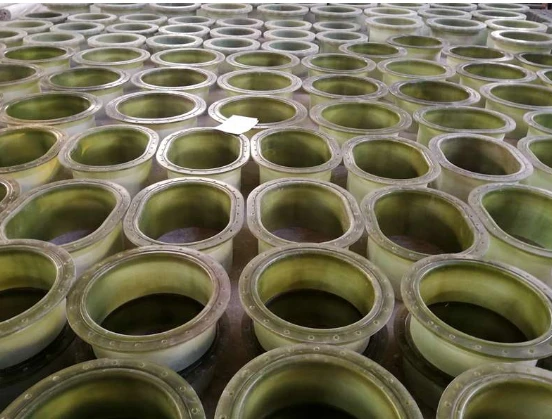
-
 Afrikaans
Afrikaans -
 Albanian
Albanian -
 Amharic
Amharic -
 Arabic
Arabic -
 Armenian
Armenian -
 Azerbaijani
Azerbaijani -
 Basque
Basque -
 Belarusian
Belarusian -
 Bengali
Bengali -
 Bosnian
Bosnian -
 Bulgarian
Bulgarian -
 Catalan
Catalan -
 Cebuano
Cebuano -
 China
China -
 China (Taiwan)
China (Taiwan) -
 Corsican
Corsican -
 Croatian
Croatian -
 Czech
Czech -
 Danish
Danish -
 Dutch
Dutch -
 English
English -
 Esperanto
Esperanto -
 Estonian
Estonian -
 Finnish
Finnish -
 French
French -
 Frisian
Frisian -
 Galician
Galician -
 Georgian
Georgian -
 German
German -
 Greek
Greek -
 Gujarati
Gujarati -
 Haitian Creole
Haitian Creole -
 hausa
hausa -
 hawaiian
hawaiian -
 Hebrew
Hebrew -
 Hindi
Hindi -
 Miao
Miao -
 Hungarian
Hungarian -
 Icelandic
Icelandic -
 igbo
igbo -
 Indonesian
Indonesian -
 irish
irish -
 Italian
Italian -
 Japanese
Japanese -
 Javanese
Javanese -
 Kannada
Kannada -
 kazakh
kazakh -
 Khmer
Khmer -
 Rwandese
Rwandese -
 Korean
Korean -
 Kurdish
Kurdish -
 Kyrgyz
Kyrgyz -
 Lao
Lao -
 Latin
Latin -
 Latvian
Latvian -
 Lithuanian
Lithuanian -
 Luxembourgish
Luxembourgish -
 Macedonian
Macedonian -
 Malgashi
Malgashi -
 Malay
Malay -
 Malayalam
Malayalam -
 Maltese
Maltese -
 Maori
Maori -
 Marathi
Marathi -
 Mongolian
Mongolian -
 Myanmar
Myanmar -
 Nepali
Nepali -
 Norwegian
Norwegian -
 Norwegian
Norwegian -
 Occitan
Occitan -
 Pashto
Pashto -
 Persian
Persian -
 Polish
Polish -
 Portuguese
Portuguese -
 Punjabi
Punjabi -
 Romanian
Romanian -
 Russian
Russian -
 Samoan
Samoan -
 Scottish Gaelic
Scottish Gaelic -
 Serbian
Serbian -
 Sesotho
Sesotho -
 Shona
Shona -
 Sindhi
Sindhi -
 Sinhala
Sinhala -
 Slovak
Slovak -
 Slovenian
Slovenian -
 Somali
Somali -
 Spanish
Spanish -
 Sundanese
Sundanese -
 Swahili
Swahili -
 Swedish
Swedish -
 Tagalog
Tagalog -
 Tajik
Tajik -
 Tamil
Tamil -
 Tatar
Tatar -
 Telugu
Telugu -
 Thai
Thai -
 Turkish
Turkish -
 Turkmen
Turkmen -
 Ukrainian
Ukrainian -
 Urdu
Urdu -
 Uighur
Uighur -
 Uzbek
Uzbek -
 Vietnamese
Vietnamese -
 Welsh
Welsh -
 Bantu
Bantu -
 Yiddish
Yiddish -
 Yoruba
Yoruba -
 Zulu
Zulu
Exploring the Benefits and Applications of Fiberglass Field Tanks for Storage Solutions
Understanding Fiberglass Field Tanks An Essential Resource for Agriculture
In the realm of agriculture, the importance of effective water storage solutions cannot be overstated. As farming practices evolve and water scarcity becomes an increasingly pressing issue, the demand for reliable, durable, and efficient storage systems is paramount. Enter fiberglass field tanks, a groundbreaking solution that has transformed the way farmers manage water resources.
Fiberglass field tanks are constructed from a composite material made of glass fibers and resin, known for its lightweight yet robust characteristics. This innovative design allows for large storage capacities while remaining portable and easy to install. One of the standout features of fiberglass tanks is their resistance to corrosion. Unlike metal tanks, which can rust and degrade over time due to exposure to water and various environmental conditions, fiberglass tanks maintain their integrity and performance over the years, making them an ideal choice for long-term use.
Moreover, fiberglass tanks are designed to withstand extreme weather conditions—be it intense sunlight, high humidity, or freezing temperatures. This durability ensures that farmers can rely on their tanks in crucial moments, such as during dry spells or when preparing for irrigation during peak growing seasons. Additionally, the smooth surface of fiberglass tanks prevents the growth of algae and other harmful substances, helping to preserve water quality.
fiberglass field tank

Another significant advantage of fiberglass field tanks is their customization potential. These tanks are available in various sizes and shapes, allowing farmers to select the option that best suits their specific needs. Whether it be a small tank for a hobby farm or a vast reservoir for large-scale operations, there is a fiberglass tank solution available to meet diverse agricultural requirements. Furthermore, many manufacturers offer design features such as built-in spill containment and enhanced UV protection, further increasing the tanks' efficacy and longevity.
Cost-effectiveness is another compelling factor contributing to the popularity of fiberglass tanks. While the initial investment may be higher compared to traditional options, the long-term savings derived from reduced maintenance, longevity, and efficiency make them a financially sound choice. Farmers are increasingly recognizing that fiberglass tanks, with their low overall lifecycle costs, represent a sustainable investment for their operations.
In conclusion, fiberglass field tanks have emerged as an essential resource for modern agriculture. Their durability, resistance to environmental factors, customizable options, and long-term cost-effectiveness make them a preferred choice for efficient water management on farms. As agricultural practices continue to evolve amidst challenges such as climate change and growing water demands, the reliance on innovative solutions like fiberglass tanks will only become more critical. Embracing these advancements in water storage technology can empower farmers to optimize their resources and foster sustainable agricultural practices for the future.









